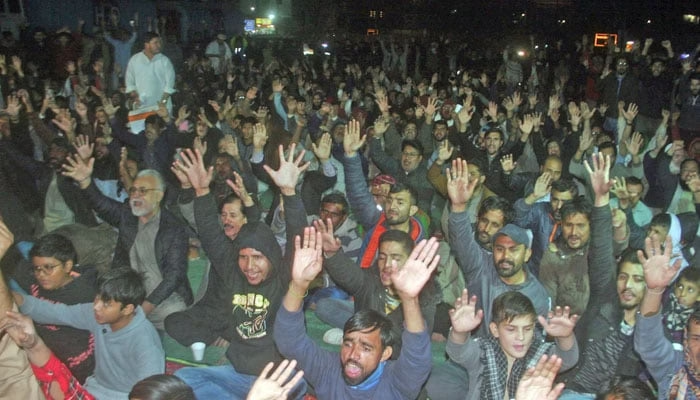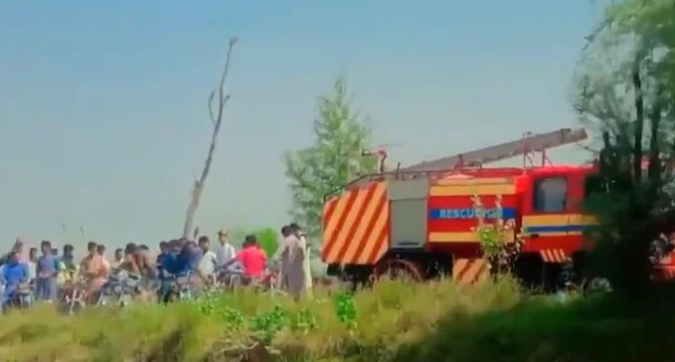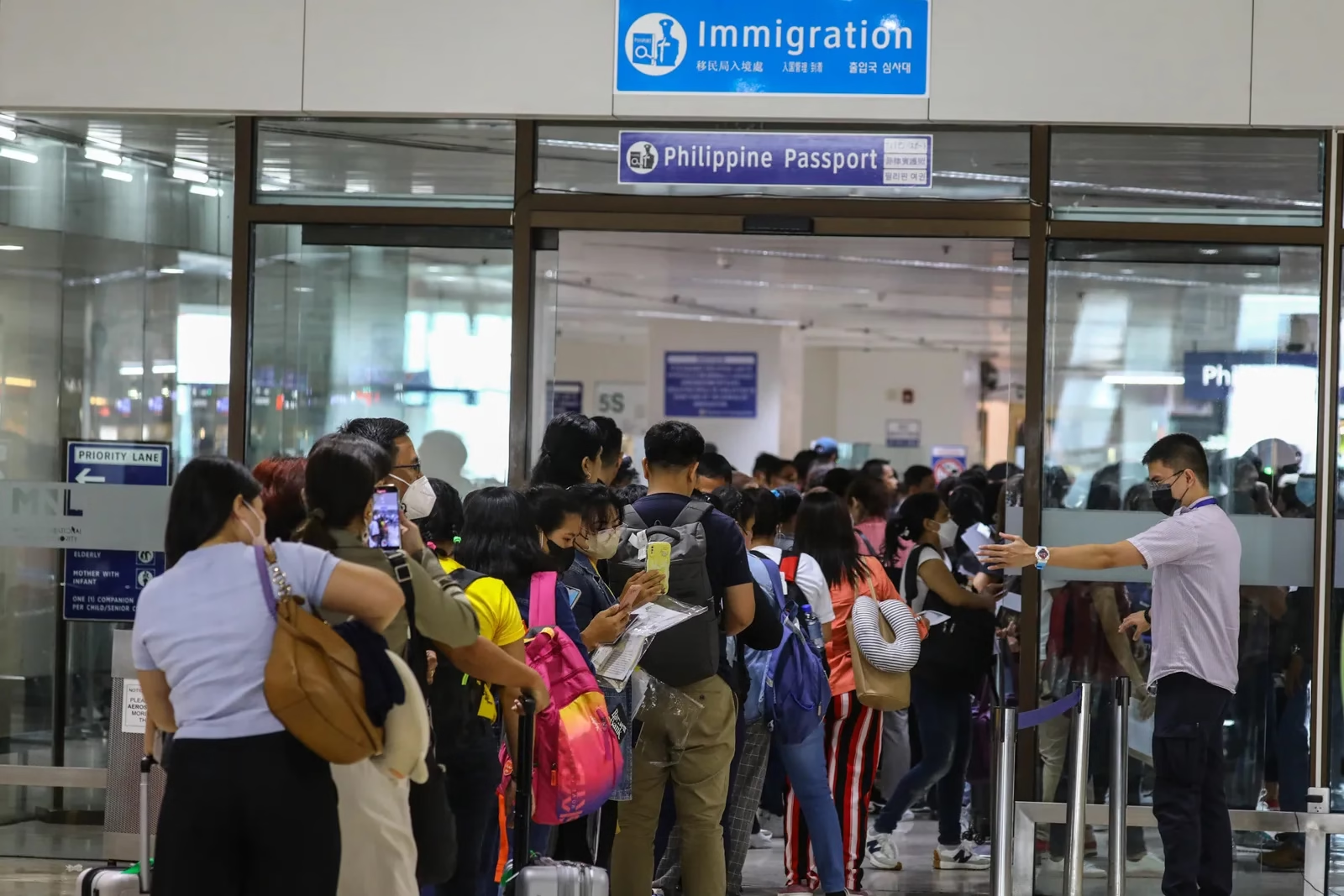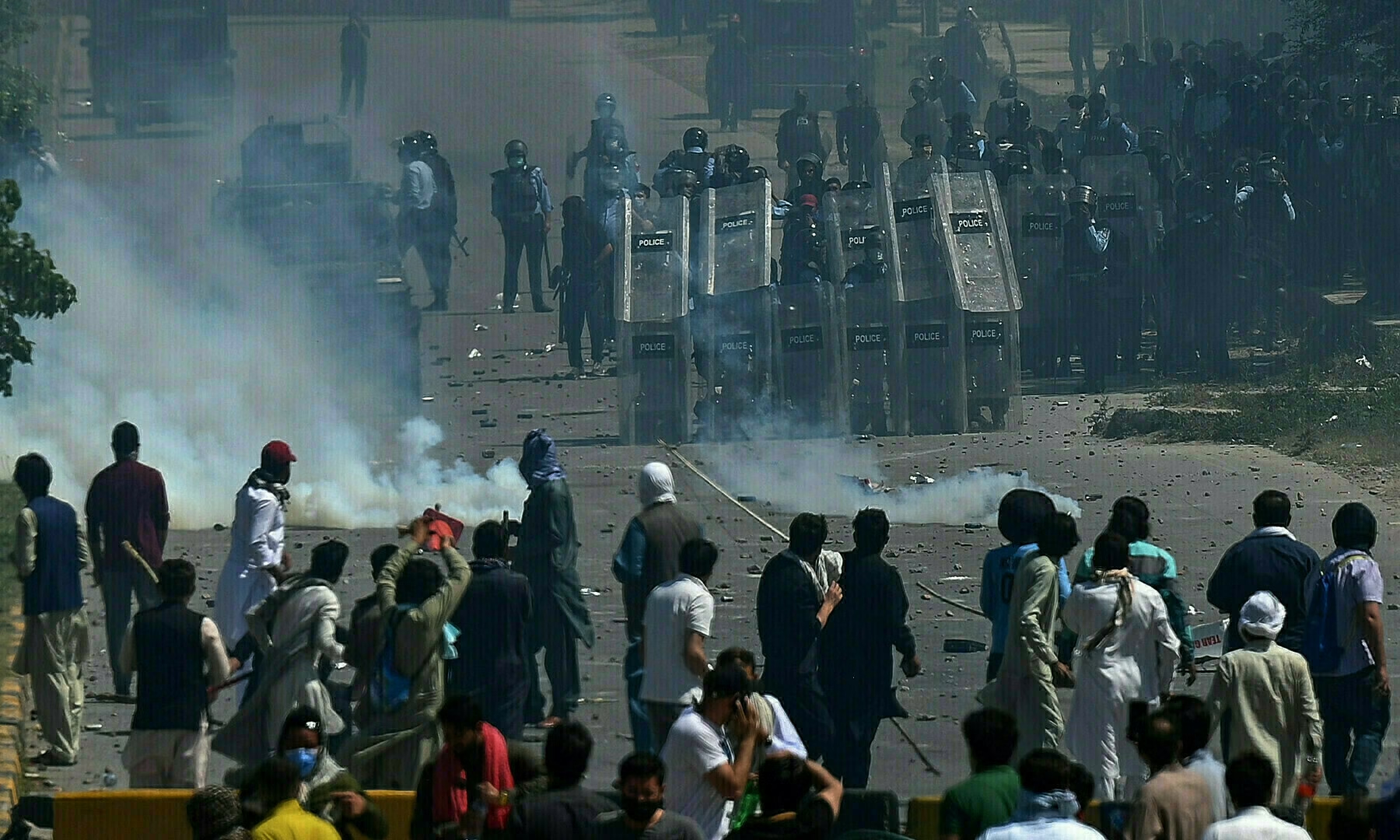Karachi has witnessed significant unrest as the Majlis Wahdat Muslimeen (MWM) has organized widespread protests across various neighborhoods in response to the ongoing violence and humanitarian crisis in Parachinar. These demonstrations have not only drawn attention to the plight of the residents of Parachinar but have also caused severe traffic disruptions throughout the city, affecting thousands of commuters and travelers.
Background of the Protests
The situation in Parachinar, a town in Kurram District of Pakistan, has deteriorated over recent months. Reports indicate that residents are facing increasing violence, blockades, and shortages of essential supplies. The MWM, a political and religious organization representing Shia Muslims in Pakistan, has taken a strong stance against what they describe as government inaction regarding the safety and welfare of Parachinar’s citizens.
Allama Hassan Zafar, a prominent leader of MWM, addressed a gathering at one of the sit-ins, stating that the people of Parachinar are “under siege from all sides.” He criticized the government for delaying the opening of crucial roads leading to Kurram and warned that if conditions do not improve, protests would escalate to every divisional headquarters across Pakistan.
Traffic Disruptions Across Karachi
The protests have led to significant traffic jams in several key areas of Karachi. Notably, Shar-e-Faisal, one of the city’s major thoroughfares, has become a hotspot for demonstrations. Protest sit-ins have been reported at Star Gate and Malir 15, causing severe congestion. Commuters attempting to travel along Shar-e-Faisal are finding themselves stuck in long lines of traffic as multiple roads have been closed.
Key Affected Areas
- Shar-e-Faisal: The sit-ins at Star Gate and Malir 15 have created a bottleneck effect on Shar-e-Faisal, disrupting not only local traffic but also affecting access to nearby neighborhoods and commercial areas.
- Kala Chapra and Shah Faisal Colony: Protests in these areas have further exacerbated traffic issues, with many roads being blocked for extended periods. Residents report difficulty accessing essential services and workplaces.
- National Highway: The main route from Malir 15 to Quaidabad is closed due to the protests. This closure has significant implications for freight transport and daily commuting for many residents who rely on this vital artery.
- Airport Access: Passengers heading to Jinnah International Airport are experiencing considerable delays as routes connecting Shar-e-Faisal to the airport are heavily congested or closed. This situation has raised concerns among travelers who fear missing their flights due to the ongoing protests.
- Nhamshid Chowrangi and Abul Hassan Isfahani Road: Sit-ins are also taking place near these locations, contributing to further road closures. The road from Nhamshid Chowrangi to Guru Mandir is completely blocked, isolating parts of Abbas Town from the rest of the city.
Impact on Daily Life
The ongoing protests have had a ripple effect on daily life in Karachi. Commuters are facing unprecedented delays, leading to frustration and anxiety as they navigate through congested streets. Many people are forced to seek alternative routes or modes of transportation, which may not be readily available or safe.
Businesses in affected areas are also feeling the impact. With roads closed and foot traffic diminished due to protest activities, local shops and services are experiencing decreased patronage. This economic strain adds another layer of difficulty for residents already grappling with the consequences of civil unrest.
Community Response
The protests have sparked varied reactions within Karachi’s diverse population. While many sympathize with the plight of Parachinar residents and support MWM’s cause, others express frustration over the disruptions caused by the sit-ins. Some citizens argue that while raising awareness about important issues is crucial, blocking major roads compromises public safety and convenience.
Community leaders and local organizations have called for dialogue between protestors and government officials to find a peaceful resolution that addresses both the humanitarian crisis in Parachinar and the immediate concerns of Karachi’s residents regarding traffic disruptions.
Government Response
As protests continue, there has been mounting pressure on government officials to respond effectively to both the situation in Parachinar and the unrest in Karachi. Critics argue that delays in addressing these issues reflect broader systemic problems within governance structures in Pakistan.
In response to MWM’s demands, government representatives have stated that they are aware of the situation in Parachinar and are working towards solutions that ensure both security and access for residents. However, many protestors remain skeptical about these assurances, citing previous instances where promises were made but not fulfilled.
The protests organized by MWM highlight not only local grievances but also broader issues related to governance, security, and human rights within Pakistan. The plight of Parachinar residents serves as a reminder of ongoing conflicts that often go unnoticed by mainstream media but significantly affect communities across the country.
As Karachi continues to grapple with these protests, it becomes increasingly clear that addressing underlying issues—such as violence against minority communities, access to essential services, and effective governance—will be critical for achieving lasting peace and stability in both Parachinar and urban centers like Karachi.
The ongoing sit-ins by MWM in Karachi over the situation in Parachinar underscore a critical intersection between local activism and broader societal challenges within Pakistan. As citizens navigate through traffic chaos caused by these protests, it is essential for both protestors and government officials to engage in constructive dialogue aimed at resolving grievances while ensuring public safety.
As this situation unfolds, it remains crucial for all stakeholders—government representatives, community leaders, activists, and citizens—to work collaboratively towards solutions that prioritize human rights and address pressing humanitarian needs without compromising public order or safety. Only through such collective efforts can Karachi hope to return to normalcy while ensuring that the voices advocating for justice are heard loud and clear.



